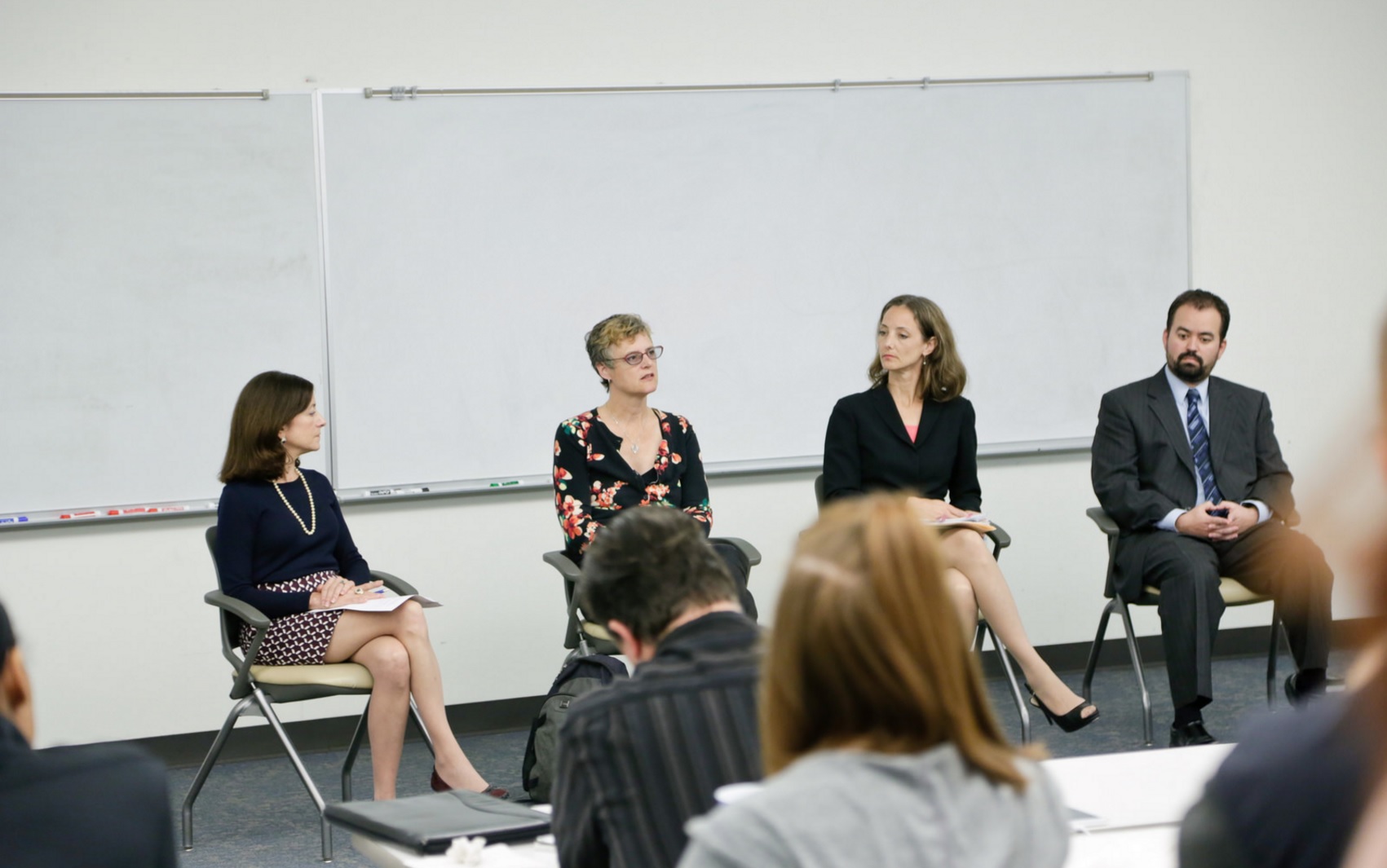On Monday, February 22, as part of the 2016 Barbara Jordan Forum, Citizens for Local and State Service (CLASS) sponsored a panel of elected officials representing city, county, and state government who addressed the topic of “Criminal Justice Reform in Central Texas.”
The panel consisted of Kathie Tovo, Austin City Council member for District 9; state representative Joe Moody of El Paso, and Travis County Judge Sarah Eckhardt.
Judge Eckhardt proposed that we have criminalized social and public health issues – everything from drugs and alcohol to the dissolution of families and the inability to care for children. She lamented the lack of evidence for any of the current approaches that are used to address these problems, and for which we are spending billions of dollars, saying that it’s very difficult to get good numbers – and that it’s usually a sign that a system is grossly inefficient. “We are failing,” she argued, and “mostly we are failing people of color who are poor.”
Council Member Tovo strongly advocated for the proposed sobriety center in Austin as an alternative to arresting and jailing people who are found to be publicly intoxicated. She pointed out that only people who weren’t simultaneously committing another crime, such as DUI or assault, would be eligible for the center, but that 76 percent of people currently arrested for public intoxication would be eligible under those guidelines. She said that Austin currently spends about three-quarters of a million dollars a year—just on jail costs, not counting the cost of policing—to handle public intoxication arrests, and that the sobriety center would greatly reduce that amount. In terms of time, she said that Austin police officers are already “over-committed,” and that the sobriety center would help get those officers back into the community faster.
Representative Moody pointed to the marijuana reform bill that he had filed in the last legislative session that would have ended arrests for possession of one ounce or less of marijuana, making it a citation offense instead. He said that marijuana reform is just a matter of time, and that the Texas Association of Businesses had supported his bill. Noting that “it’s an expensive system,” he argued that criminal justice reform is largely driven by the desire to reduce the budget. However, he said, it’s very hard to fight a new criminal law in the legislature—very often, a new law is a result of “something terrible” that happened in a legislator’s home district, and despite the law not really being necessary, it can be difficult to vote against it.
In response to a question from LBJ faculty member Michele Deitch about the possibility of increased state oversight for jail safety, Judge Eckhardt said bluntly that “lots and lots of people die needlessly” in Texas county jails, and that we need a better medical community presence inside the jails. She said that the more members of the medical community and other outsiders there are “behind the wire,” the safer jails become. Representative Moody pointed out that in the Sandra Bland case, the jail staff screened her for mental health issues as they should have, but then didn’t do anything with that information. However, he expressed doubts that Texas sheriffs would support a new oversight mechanism such as an ombudsman.
In response to a question about “fair chance” employment initiatives that make it easier for those with felony convictions to find work and housing, Judge Eckhardt expressed her support for “ban the box” initiatives which remove the check box on employment applications asking about felony convictions. She added that Travis County had banned the box years ago, and had seen no downside. She praised existing programs that seek out and identify employers willing to employ those with a felony record because people with felony convictions often simply don’t apply for jobs, assuming they will be rejected. She said that when those with felony convictions are matched up with employers willing to hire them, the employers are rewarded with an extremely loyal workforce.
Council Member Tovo said that Austin had a ban the box policy, and was considering a “fair chance” proposal the very next day, which would require companies that do business with the city to abide by certain policies with regard to hiring those with felony convictions.
Representative Moody also expressed his support for fair chance programs, but noted that legislators are already getting pushback for expanding food stamp access to those with felony convictions – even though that expansion makes those individuals more likely to successfully reintegrate into society and less likely to reoffend. He warned that if legislators lose their seats over such reforms, it could seriously threaten the growing bipartisan support which has made criminal justice reform possible so far.
Edited by: Mariam Ahmed

